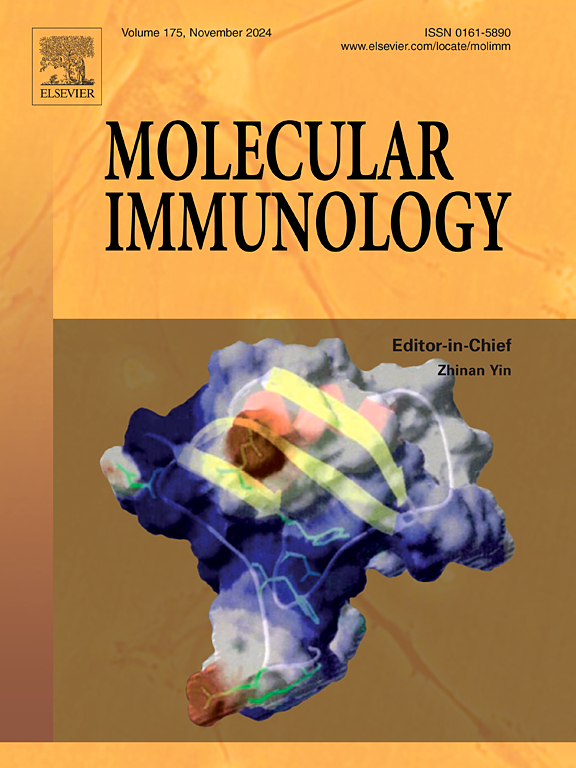NK cellular derived nanovesicles in tumor immunity
IF 3.2
3区 医学
Q2 BIOCHEMISTRY & MOLECULAR BIOLOGY
引用次数: 0
Abstract
Natural Killer (NK) cells are a vital element of the innate immune system, and NK cell-based therapies have demonstrated efficacy against various malignancies. However, targeting solid tumors has been challenging due to the low infiltration of NK cells into tumors and the effective evasion strategies employed by tumors. Recent studies have shown that NK cell derived nanovesicles (NK-NV) can not only replicate the functions of NK cells but also offer more advantages in clinical applications. They are capable of transporting various cellular components such as proteins, nucleic acids, and lipids across distances, thereby facilitating intercellular communication among various cells within the tumor microenvironment (TME). With the progress in nanomedical technology, these vesicles can be engineered to carry a range of functional elements and therapeutic agents to enhance their antitumoral capabilities. In this review, we summarize the current available literature on NK-NVs, discuss their potential biological functions and the role of non-coding RNAs (ncRNAs), and explore their application in the treatment of solid tumors.
NK细胞源性纳米囊泡在肿瘤免疫中的作用
自然杀伤(NK)细胞是先天免疫系统的重要组成部分,基于NK细胞的治疗已经证明对各种恶性肿瘤有效。然而,由于NK细胞对肿瘤的低浸润性和肿瘤采用的有效逃避策略,靶向实体肿瘤一直具有挑战性。近年来的研究表明,NK细胞衍生的纳米囊泡(NK- nv)不仅可以复制NK细胞的功能,而且在临床应用中具有更多的优势。它们能够远距离运输各种细胞成分,如蛋白质、核酸和脂质,从而促进肿瘤微环境(TME)内各种细胞之间的细胞间通讯。随着纳米医学技术的进步,这些囊泡可以被设计成携带一系列功能元件和治疗剂,以增强其抗肿瘤能力。本文综述了目前关于NK-NVs的文献,讨论了其潜在的生物学功能和非编码rna (ncRNAs)的作用,并探讨了其在实体肿瘤治疗中的应用。
本文章由计算机程序翻译,如有差异,请以英文原文为准。
求助全文
约1分钟内获得全文
求助全文
来源期刊

Molecular immunology
医学-免疫学
CiteScore
6.90
自引率
2.80%
发文量
324
审稿时长
50 days
期刊介绍:
Molecular Immunology publishes original articles, reviews and commentaries on all areas of immunology, with a particular focus on description of cellular, biochemical or genetic mechanisms underlying immunological phenomena. Studies on all model organisms, from invertebrates to humans, are suitable. Examples include, but are not restricted to:
Infection, autoimmunity, transplantation, immunodeficiencies, inflammation and tumor immunology
Mechanisms of induction, regulation and termination of innate and adaptive immunity
Intercellular communication, cooperation and regulation
Intracellular mechanisms of immunity (endocytosis, protein trafficking, pathogen recognition, antigen presentation, etc)
Mechanisms of action of the cells and molecules of the immune system
Structural analysis
Development of the immune system
Comparative immunology and evolution of the immune system
"Omics" studies and bioinformatics
Vaccines, biotechnology and therapeutic manipulation of the immune system (therapeutic antibodies, cytokines, cellular therapies, etc)
Technical developments.
 求助内容:
求助内容: 应助结果提醒方式:
应助结果提醒方式:


